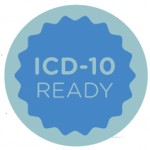
Image Credit: wavebreakmedia/shutterstock
Full implementation of ICD-10 will go live on Oct. 1, 2015, and congressional leaders have confirmed there will be no further delays. The transition to ICD-10 is not just a simple update; it is a major revamping of diagnosis coding. With the complexity of coding using the ICD-10 system and the high risk of disruptions to workflow and reimbursement, robust education and widespread testing on all aspects of ICD-10 are needed to facilitate a seamless transition. With only three months left to prepare, figuring out what needs to be completed to be ICD-10 compliant is a project within itself, but the key is identifying the gaps to prioritize where to focus your time and energy. Just like a jigsaw puzzle, it will be necessary to have the required pieces and understand how they fit together for transition to the new code set.
Every healthcare stakeholder will be affected by the transition to the expanded ICD-10 code sets, as these changes will impact medical coding operations, software systems, reporting, administration, registration and more. ICD-10 implementation requires a methodical approach consisting, in part, of the following steps:
- Evaluate all clinical, financial and business systems that currently use ICD-9 codes. This includes your practice management system, EMR and encounter forms/superbills. Keep in mind that wherever ICD-9 is used currently in your practice, ICD-10 codes will take its place.
- Collaborate with practice management vendors, billing services, and payers to ensure that ICD-10 implementation is a priority for them and discuss implementation plans to ensure a smooth transition.
- Draft a budget that adequately covers changes to business processes, changes to software systems and staff training. It is important to assess staff training needs, as coding and guideline changes in ICD-10-CM for rheumatic conditions may require coders to learn new terms and look for additional information in documentation to reach the highest level of specificity in the code set.
- Identify potential changes to workflow and business processes. Consider changes to existing processes, including clinical documentation, encounter forms, and other requirements for quality health reporting.
Systems are not the only thing that needs evaluation and updating—it is very important to apply a clinical documentation improvement gap analysis to patient charts (for more information on the importance of clinical documentation, see “Clinical Documentation Improvement Programs Can Protect Physicians,” The Rheumatologist, August 2014). Clinical documentation improvement is not a new concept, but it is a crucial piece of the puzzle for ICD-10 readiness. Issues related to inconsistent, missing, conflicting or unclear documentation must be resolved now under ICD-9, as well as in the future with ICD-10-CM, to improve coding and documentation practices. Improvement in recording key elements in the patient record for etiology, severity of illness, laterality and anatomical site are the first steps that will make a difference in any ICD-10–related denials, but most importantly, it will improve compliance with the new coding guidelines and convention requirements.
ICD-10 education should be a major area of focus between now and the compliance date to minimize coding errors after implementation. In The Cost of Implementing ICD-10 for Physician Practices, the authors indicate that training clinical and administrative staff to use the new ICD-10 code set may require up to 16 hours for coding staff, eight hours for administrative staff and 12 hours for providers.1
In response to this assessment, the ACR has created rheumatology-specific training with targeted learning for physicians, coders, billers and administrators. The training session includes a concentrated focus on clinical documentation improvement to reach the highest level of ICD-10 specificity, by accurately pinpointing problematic terms in ICD-9 and ICD-10, common documentation deficiencies in patient medical records, as well as steps to minimize the likelihood of cash flow disruption after Oct. 1.
For questions on ICD-10 implementation and/or impact, contact Antanya Chung at [email protected] or 404-633-3777 x818.
Join us at one of our upcoming training classes! These day-long in-depth workshops are designed to provide you and your staff with comprehensive training on ICD-10 and actionable steps necessary for transition.
For information on workshop availability or training opportunities in your area, contact Melesia Tillman at [email protected] or 404-633-3777 x820.
Reference
- Hartley C, Nachimson S. The Cost of Implementing ICD-10 for Physician Practices—Updating the 2008 Nachimson Advisors Study. A Report to the American Medical Association. 2014 Feb 12.
Editor’s note: For more on the ICD-10 implementation, see “Prepare NOW for ICD-10 Medical Coding Transition.”
ACR Rheumatology-Specific ICD-10 Workshops
July 17 & 18 – Los Angeles
July 24 – Dover, Del.
July 26 – Eugene, Ore.
July 30 – Oklahoma City
August 1 – Dallas
August 7 & 8 – San Francisco
August 20 & 21 – San Antonio
August 28 – Des Moines, Iowa
November 6 – San Francisco (ACR/ARHP Annual Meeting)


